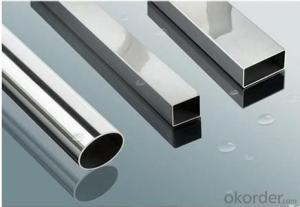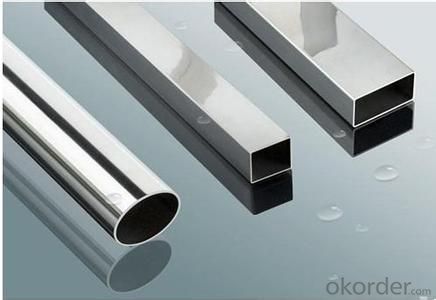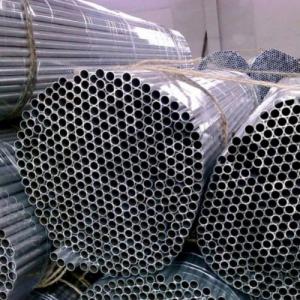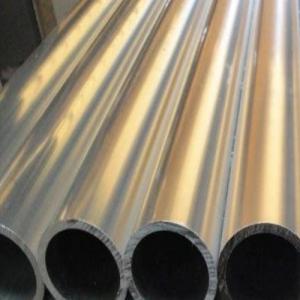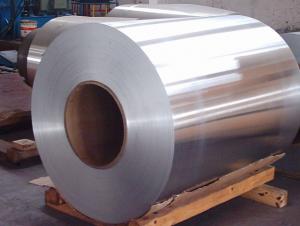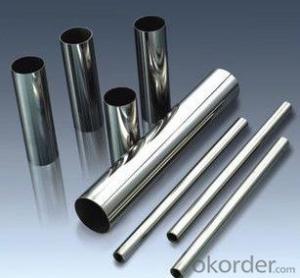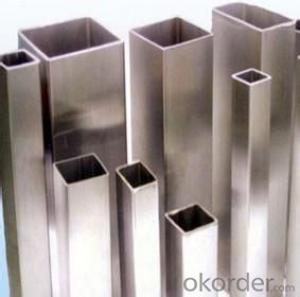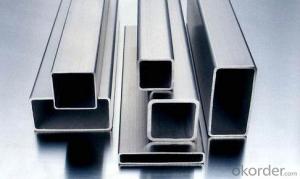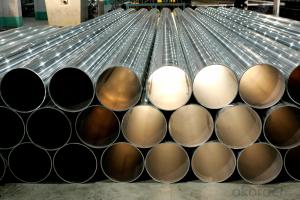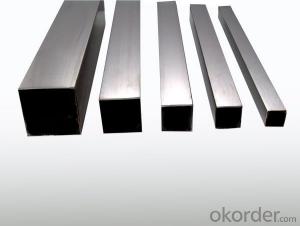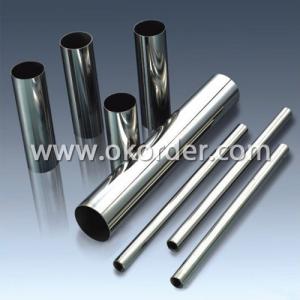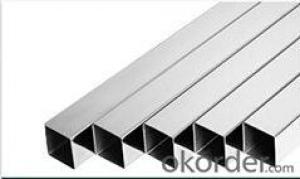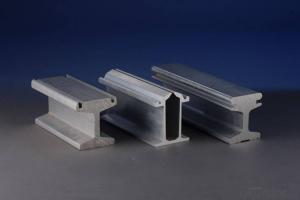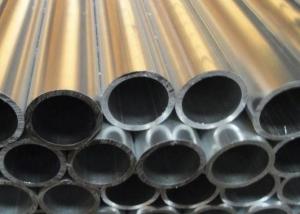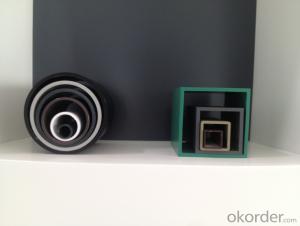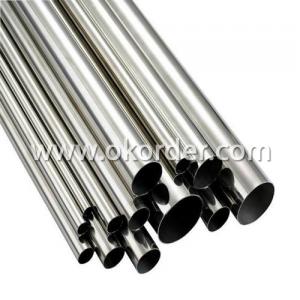Aluminum Pipes - Square Aluminum Tube
OKorder Service Pledge
OKorder Financial Service
You Might Also Like
We are the largest aluminum profilemanufacture in
Provide full size of extruded seam tubes(Square):
Dimension:15mm-300mm
Wall thickness:1mm-15mm
Material | Alloy Aluminum 6063,6061,6005,6082 or customer nominated |
Temper | T3, T4, T5, T6 and other |
Surface | Anodize, electrophoresis, powder coating, PVDF coating, wood grain painting, etc. |
Colour | Any colour based on Standard Germany RAL Mark |
Length | Not more than 16 meters |
Good Package | Inner plastic film /outside carton/wooden pallets |
Payment Method | T/T, L/C, etc |
Delivery Time | Normally 2-4 weeks, Delivery time can be consulted. |
Press Machine | 500-12500 tons all together 93 press lines. |
Fabrication | 1. Furniture 2. Drilling; 3. Bending; 4. Cutting; 5. etc. |
Certificate | ISO/TS 16949,DNV,IRIS,CCS,AFA,etc. |
Dies | 1. Using our dies, no fee; |
2. Using customer drawing, opening dies, usually about 5~50 tons then the dies cost can be refunded. | |
3. Die cost is negotiable base on the order quantity | |
Capability | Annual output 800,000 tons |
- Q: How do aluminum pipes compare to copper pipes?
- Aluminum pipes are generally less expensive and lighter than copper pipes, making them a cost-effective option for various applications. However, copper pipes have better corrosion resistance and can handle higher pressure and temperature, making them more suitable for certain industries and plumbing systems. Ultimately, the choice between aluminum and copper pipes depends on the specific requirements of the project and the trade-offs one is willing to make.
- Q: What is the lifespan of aluminum pipes?
- The lifespan of aluminum pipes can vary depending on several factors including the quality of the material, the conditions in which they are used, and the maintenance practices employed. However, on average, aluminum pipes can have a lifespan of 20 to 50 years. This is because aluminum is known for its excellent corrosion resistance, which helps prevent rust and other forms of deterioration. Additionally, aluminum pipes are lightweight and durable, making them suitable for various applications. With proper care and regular inspections, aluminum pipes can last for several decades, providing reliable performance and longevity.
- Q: What are the sound transmission properties of aluminum pipes?
- Aluminum pipes have good sound transmission properties due to their high stiffness and low density, allowing sound waves to travel efficiently through them. They also have excellent acoustic damping capabilities, reducing the transmission of unwanted noise.
- Q: Why is the copper tube of AUX air conditioning aluminum tube?
- The air conditioning copper tube is a kind of pressed and drawn seamless pipe. The air conditioner copper tube has the advantages of light weight, good heat conductivity and low temperature intensity.
- Q: What is the extrusion process of aluminium tube?
- It depends on the size of the aluminum tube you produced, saw or cut. Large attention to streamline, small attention to exhaust operation.
- Q: What is the difference between aluminium pipe and aluminium alloy pipe?
- Aluminum tube refers to a pure aluminum or aluminum alloy by extrusion processing into its longitudinal length of hollow metal tubular material. There may be one or more closed through holes with uniform wall thickness and cross section to be delivered in a straight or coiled form. Widely used in automobiles, ships, aerospace, aviation, electrical appliances, agriculture, machinery and electrical, home and other industries.
- Q: Vanward gas 6B water heater is a copper tube or aluminum tube?
- Your model does not provide specific, you can go to a professional forum, information website view.
- Q: How many kilograms does the copper pipe withstand? How many kilograms does the aluminum pipe withstand?
- The calculation formula for P=2 * S * t/ (D0.8t)Formula P - hydrostatic pressure of test water, MPaT - pipe wall thickness, mmD - pipe outer diameter, mmS - allowable stress of materials, MPa
- Q: Are aluminum pipes suitable for structural supports in buildings?
- Aluminum pipes can be suitable for structural supports in buildings under certain circumstances. Aluminum is a lightweight material, making it an attractive option for construction projects that require ease of handling and installation. Additionally, aluminum pipes are resistant to corrosion, which can be advantageous in environments with high humidity or exposure to chemicals. However, it is important to consider the load-bearing requirements of the building when choosing aluminum pipes as structural supports. Aluminum has a lower strength-to-weight ratio compared to other materials such as steel, which means it may not be suitable for heavy loads or applications that require significant structural support. In such cases, steel or other stronger materials would be more appropriate. Furthermore, aluminum pipes may be more susceptible to deformation or bending under heavy loads or extreme weather conditions. This can compromise the structural integrity of the building if not properly accounted for in the design and construction process. Ultimately, the decision to use aluminum pipes as structural supports in buildings should be based on a thorough analysis of the specific project requirements, load-bearing considerations, and consultation with structural engineers or experts in the field.
- Q: How do aluminum pipes compare to carbon steel pipes in terms of cost?
- Aluminum pipes tend to be more expensive than carbon steel pipes.
Send your message to us
Aluminum Pipes - Square Aluminum Tube
OKorder Service Pledge
OKorder Financial Service
Similar products
Hot products
Hot Searches
Related keywords
